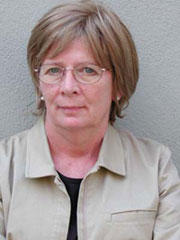1521 Bait and Switch
Writing and publishing were required in my job--and I loved it. Seeing my name in print in journals I respected was nice--but not wonderful enough for me to want to do it in retirement. I enjoy research and always did the appropriate amount and meticulously documented my conclusions. However, I usually "knew" my conclusions before I began the project. So when I saw journalist Barbara Ehrenreich being interviewed by Stephen Moore about her latest book "Bait and Switch" I wasn't too surprised by her conclusions that something is terribly wrong with our society because of her anecdotal evidence and personal prejudices proved that before she started her research. She says she was surprised that white collar, middle-class people with college degrees had trouble finding work, but her conclusion was that "they" (U.S. business?) were to blame. I wasn't surprised--I just don't agree with her method or her conclusion. Here's her method. At 63, she changes her name and social security number and attempts to get a $50,000 job in marketing. She isn't successful. Are we surprised? Have you seen her? Have you seen people who usually go into marketing and PR? This woman looks like her face would fall off if she smiled! She looks like me when I'm deep in thought. She was quite combative with the interviewer who was from the Wall Street Journal (you can watch it on C-Span Book TV on streaming video), and I'm wondering how she thought she'd come across in a personnel interview in corporate America. She admits she was "acting." Does she think personnel officers (human resource managers?) are so inexperienced they can't spot that? So she tries an image coach, who sounds like an idiot and an image consultant, but still doesn't get a job. She admits she had no "network," and actually, that's a serious weakness for many women. I'm guessing from her attitude and career track, she's a bit of a loner. "Maybe I did it wrong, but I did what other people are doing," she sighed.
Here's her method. At 63, she changes her name and social security number and attempts to get a $50,000 job in marketing. She isn't successful. Are we surprised? Have you seen her? Have you seen people who usually go into marketing and PR? This woman looks like her face would fall off if she smiled! She looks like me when I'm deep in thought. She was quite combative with the interviewer who was from the Wall Street Journal (you can watch it on C-Span Book TV on streaming video), and I'm wondering how she thought she'd come across in a personnel interview in corporate America. She admits she was "acting." Does she think personnel officers (human resource managers?) are so inexperienced they can't spot that? So she tries an image coach, who sounds like an idiot and an image consultant, but still doesn't get a job. She admits she had no "network," and actually, that's a serious weakness for many women. I'm guessing from her attitude and career track, she's a bit of a loner. "Maybe I did it wrong, but I did what other people are doing," she sighed. The interviewer pointed out the "BS" factor in the people who were making money trying to coach her into a position (for which she was completely unsuited). He suggested that the problem was "you were trying to be someone you were not." "So what" was her attitude about smiling. She missed it, didn't she? Being in marketing or PR is not about smiling. It's about personality, drive, depth, understanding the market, training, skills, and having a lot of contacts--maybe hundreds--attending sporting events, symphony, church, being on boards and committees until you think you can't attend another meeting.
Her advice for someone looking for work: "Be careful how you spend your money--it's mind games, new agey nonsense (referring to career coaches)." "Support and self-help groups don't really give a person a chance 'to tell their stories.'" She wanted out of work people to form warm fuzzy support groups and also lobbying groups. She whined about "corporate conformity" in clothing, and tried to argue with Mr. Moore who actually does work in the corporate world, when he denied a dress code. It made me wonder if she has walked the streets of any U.S. city or halls of academe and seen the awful outfits people wear, particularly women. Try church if you really want sloppy.
She refused to acknowledge the validity of Mr. Moore's statistics that countered hers--she was terribly full of "yes, buts." Her only answers for out-of-work people were for more government involvement--universal health insurance and longer unemployment benefits. How does that create one job--which was her other chord--too many jobs being lost. He decimated her points about Europe's employment picture and she just poohed-poohed them. "Well, they haven't accepted a low-wage economy. . . they have strong unions." Completely ignored the sky rocketing unemployment caused by all these features she wants in American businesses. But she was against Bush's plan to make workers more secure with their own retirement accounts (which she admits on air she knows little about--but she's against it).
We know several men ranging in age from 40-55 who are out of work and well educated--exactly her theme. They all want the same thing--well-paid, secure positions, outside the area in which they've worked, areas which have caused burn-out and failure for them. Any colleague, friend or relative could tell them what they are doing wrong and make suggestions on how to change. They will not, cannot listen. They have the same "Yes, but" attitude that Ms. Ehrenreich threw back at Mr. Moore's suggestions.
I haven't read "Bait and Switch" and probably won't. The interview was enough. I heard enough whining and sighing when I was employed.






No comments:
Post a Comment